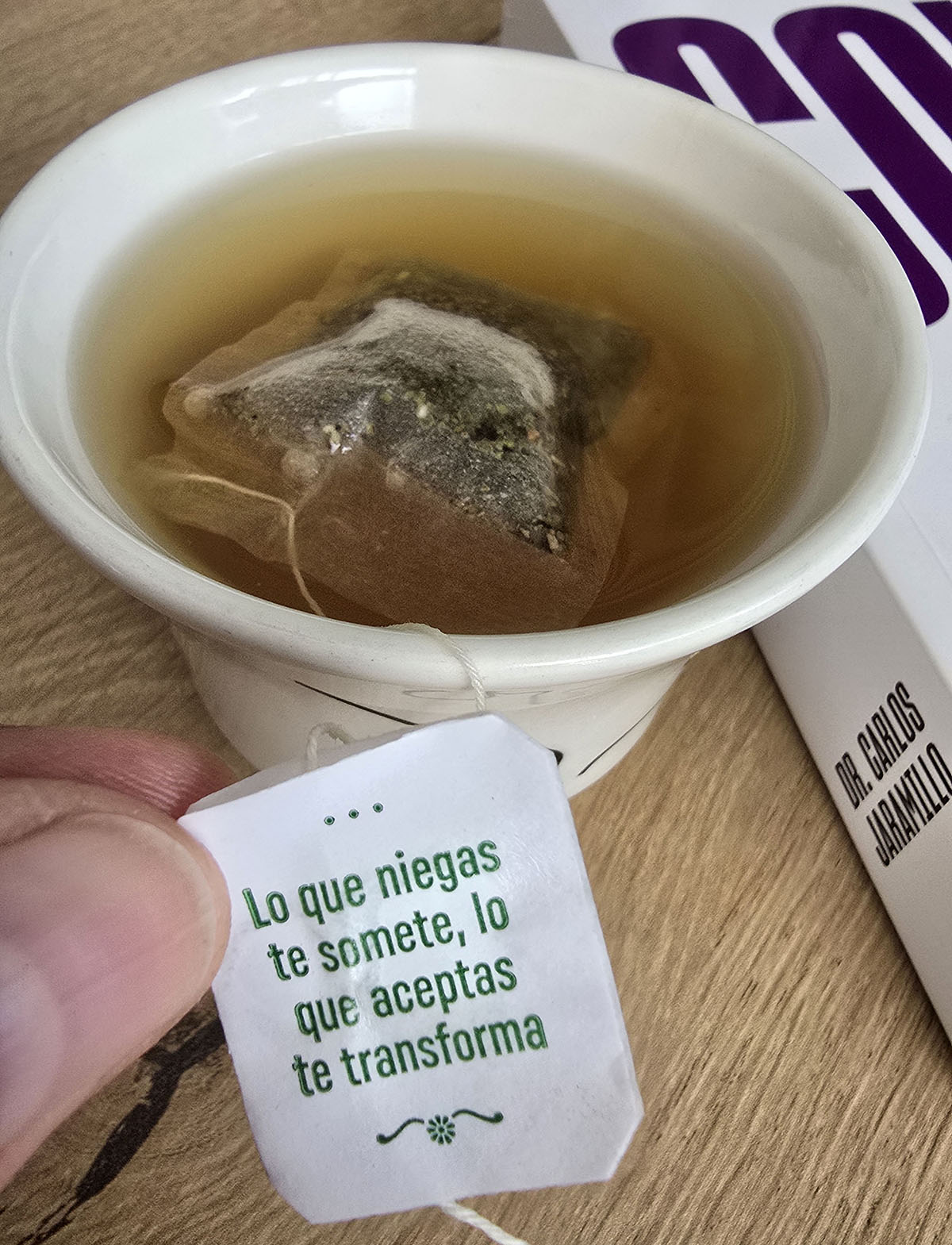Reflections Over a Cup of Tea
The Power of Acceptance
Jung and true transformation

Click to listen to the reading of my Article
Listen to my Podcast about this Article
The aroma of freshly brewed tea, the steam swirling over the cup, and once again, my curiosity to read the small text printed on the label—a small label becomes a beacon of wisdom. Today, the phrase transports me to the depths of the human psyche, guided by one of its greatest explorers, Carl Jung:
In a world obsessed with perfection, with projecting an image of uninterrupted success and happiness, we often become masters of denial. We deny our mistakes, our weaknesses, our fears, our "inappropriate" emotions, or even painful experiences from the past. We believe that by ignoring them, they will simply disappear. But, as Jung knew well, what we deny doesn't dissolve; it lurks in the shadows of our unconscious, exerting a silent but relentless power over us.
The Chains of Denial
What does it mean that what you deny "subdues" you?
It's that unexpressed rage that turns into a canker. It's the fear of vulnerability that prevents us from building deep relationships. It's the insecurity about our worth that drives us to constantly seek external approval. It's the wounds from the past that, when unacknowledged, repeat themselves in destructive patterns in the present.
When we deny a part of ourselves, we don't eliminate it; We push it into our "shadow," where it continues to operate without our awareness or control. We become puppets of our own denials. We feel "subjected" to internal forces we don't understand, trapped in a cycle of self-deception and emotional resistance.
Jung and the Path of Integration
Carl Jung, the brilliant Swiss psychiatrist, dedicated much of his work to understanding this aspect of the psyche and exploring the processes of individuation and inner reconciliation. For him, mental health and true growth lie not in eliminating or ignoring our imperfections, but in accepting and integrating them.
Acceptance is not resignation. Acceptance doesn't mean settling, but rather facing who we are without distortions. Acceptance, in the Jungian sense, is seeing reality as it is, without initial judgment. It is saying: "This is part of me (or this happened to me), and only when I fully acknowledge it can I begin to work with it."
By accepting that we have fears, we can begin to understand them. By accepting that we made a mistake, we can learn from it and forgive ourselves. By accepting a difficult emotion, we can process it and let it go, rather than letting it consume us from hiding.
The Radical Act of Acceptance to Transform
The power of this phrase lies in its promise of transformation. Transformation is not born from fighting oneself, but from a radical act of self-awareness, humility, and compassion.
When we accept our shadows, our failures, our vulnerabilities, we strip them of their hidden power. We bring them into the light of consciousness, where we can examine them, understand them, and ultimately decide what to do with them. It's like turning on a light in a dark room; what once frightened or controlled us in the darkness can now be seen and reorganized from a more loving and mature perspective.
This tea reminds me that to heal a wound, you must first see and acknowledge it, no matter how painful it may be. Only then can the process of true healing and change begin.
And you, reader...
What small acceptance could you practice today to begin your own transformation?
Take a few minutes with your cup of tea. Let the silence be with you and observe what emerges without judgment.
I'll read your comments.
License: This article is available under a Creative Commons Attribution 4.0 International (CC BY 4.0) . You may share and adapt it for any purpose, even commercially, as long as you credit Orlando Cárcamo Berrío, include a link to the license, and indicate if changes were made.
- Inicie sesión o registrese para enviar comentarios

